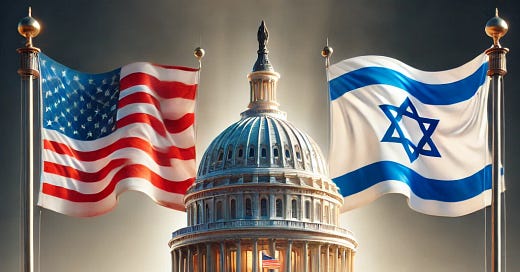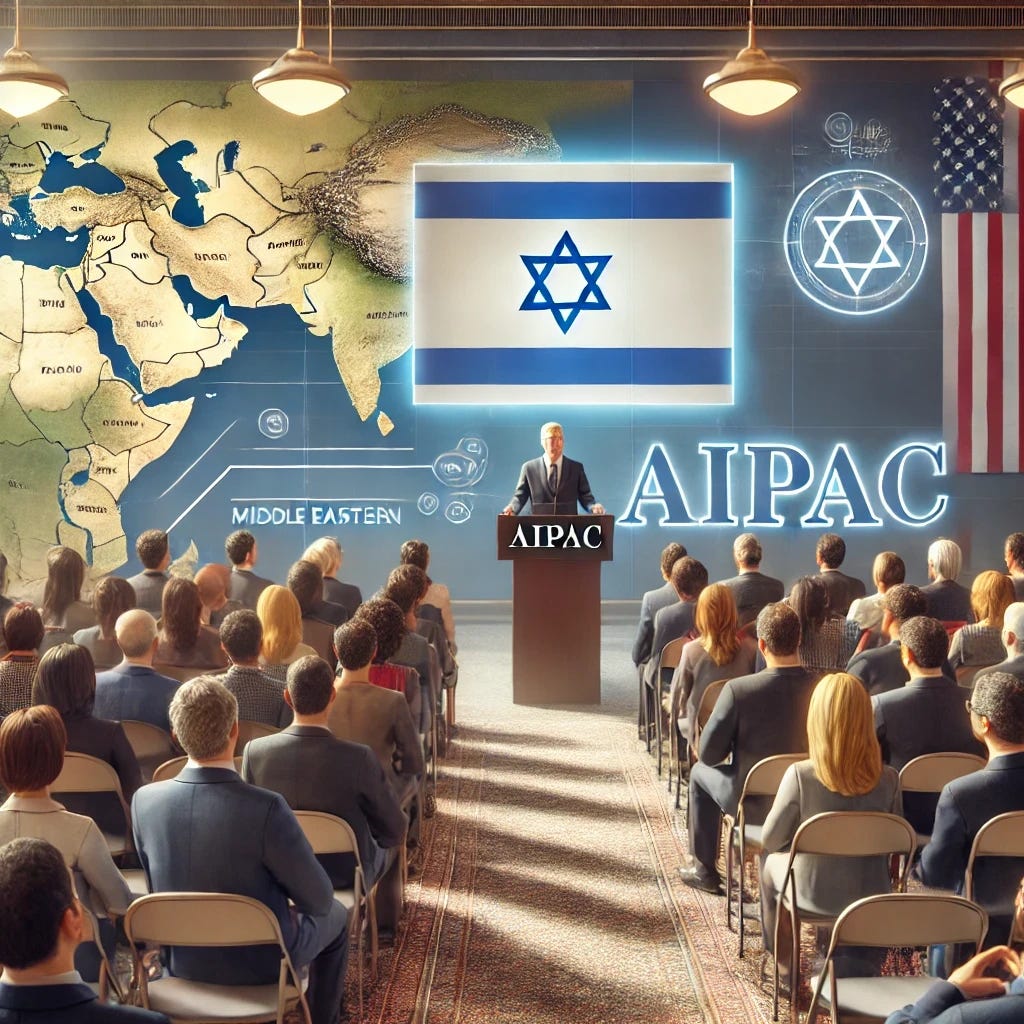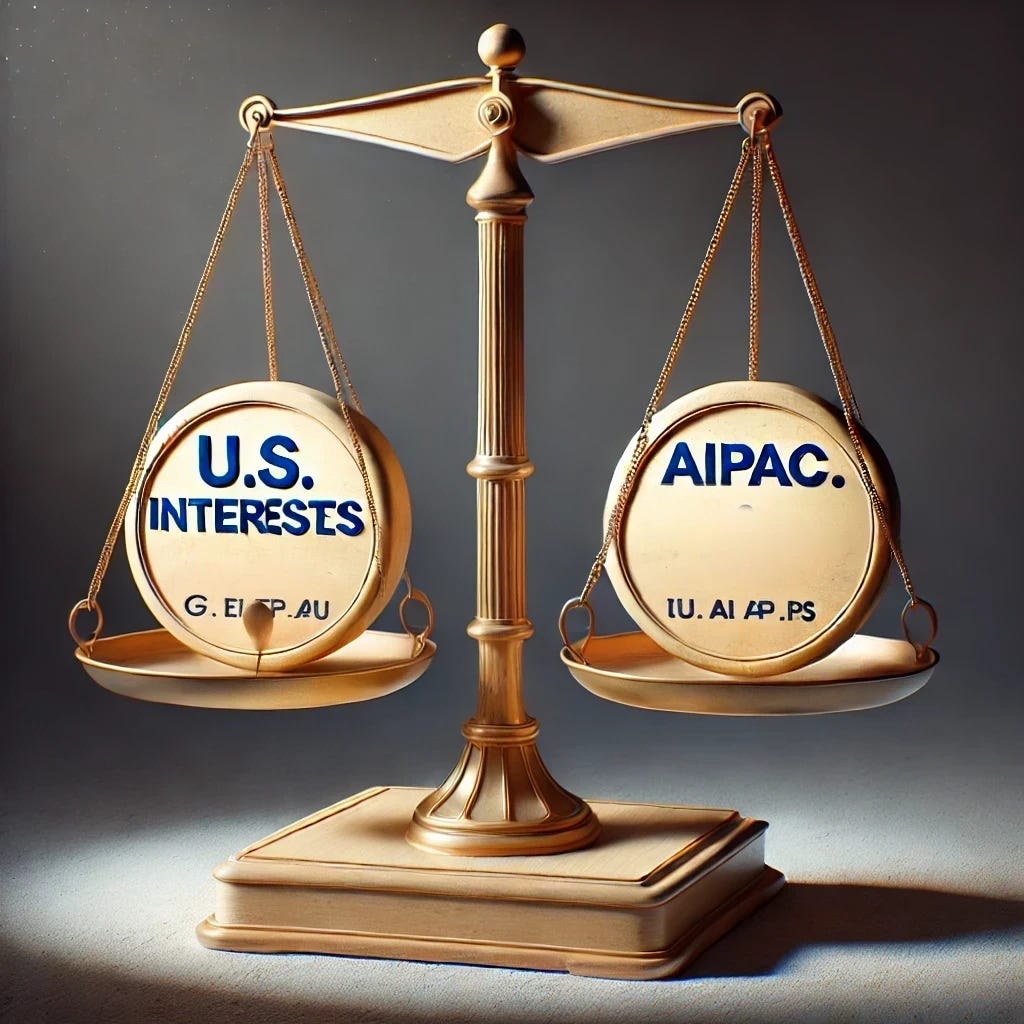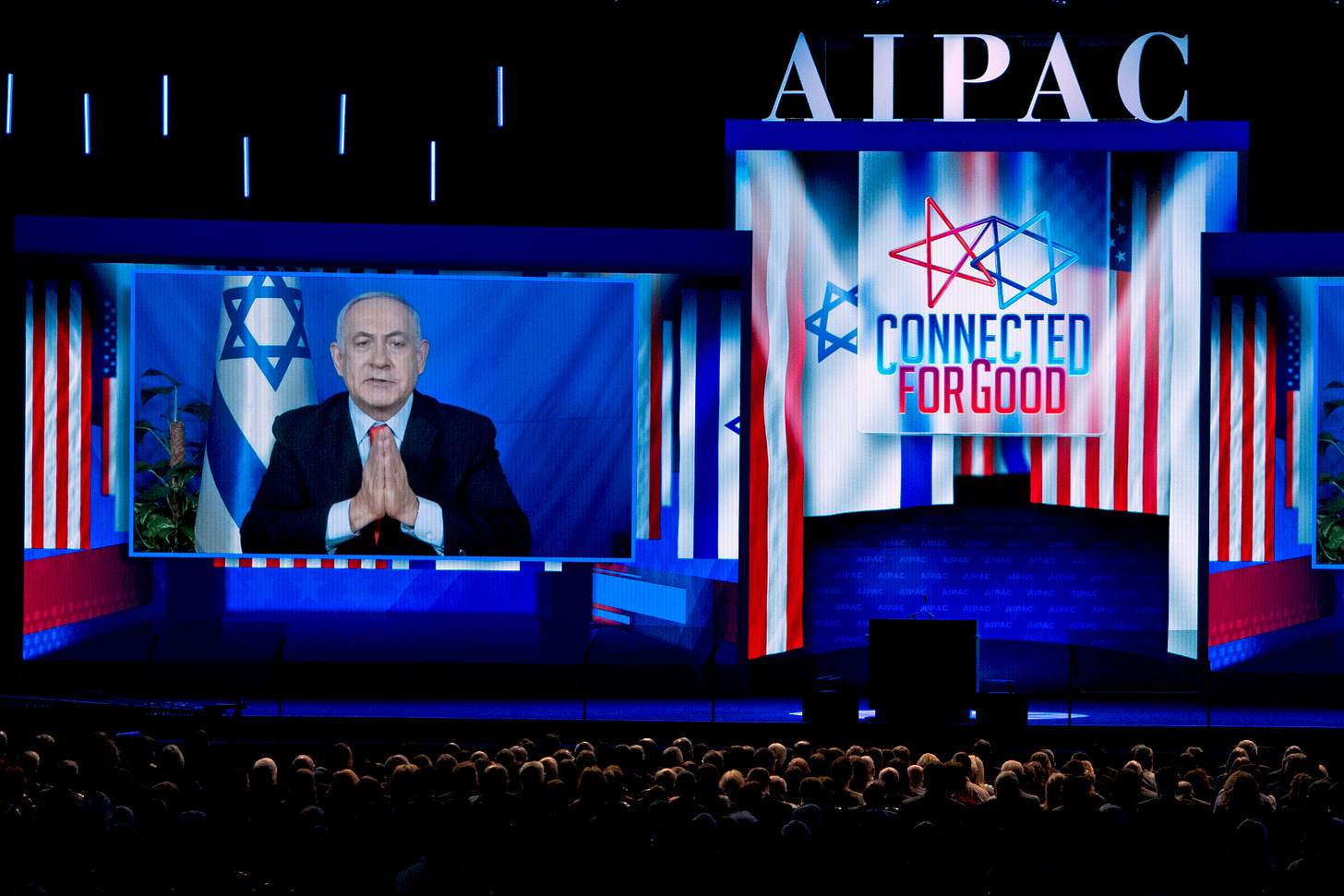Lately, I’ve been reflecting a lot on the dynamics of American politics and government, especially on how powerful lobbying groups influence decision-making. One name I’ve come across repeatedly in my readings and conversations is AIPAC, the American Israel Public Affairs Committee. I want to be clear from the start: this isn’t a “bash AIPAC” essay, nor a conspiracy piece. Instead, it’s a thoughtful reflection on how powerful lobbies—like AIPAC—shape the landscape of U.S. policy. As I’ve looked deeper into AIPAC’s influence and approach, I can see that, while the organization provides clear value to its supporters, its methods and impact deserve a closer examination.
I'm focusing on AIPAC in particular because, in light of the recent election, I’ve noticed a lot of conversation online about how lobbying organizations, including AIPAC, might be swaying outcomes and influencing political discourse. Many people are questioning the role of such groups in shaping public opinion and policy decisions. That said, AIPAC is far from the only organization that holds significant sway in American politics. Other lobbying groups, like the National Rifle Association (NRA), the American Petroleum Institute, the pharmaceutical industry's lobbying arm PhRMA, and even labor unions like the AFL-CIO, wield similar power and can be equally controversial. These groups invest heavily in shaping legislation, election outcomes, and public opinion, often aligning policies with their interests rather than the broader public good. So while this reflection focuses on AIPAC, it’s part of a larger conversation about the power of lobbyists in general and the impact they have on American democracy.
One of the clearest strengths of AIPAC is its commitment to ensuring a strong alliance between the U.S. and Israel, which many consider vital for stability in West Asia. With Israel’s democratic framework, strategic position, and substantial military capabilities, advocates argue it’s an essential U.S. ally. AIPAC champions policies that foster this relationship, encouraging defense cooperation, intelligence sharing, and financial assistance. Supporters believe these measures ultimately benefit both nations by reinforcing peace, security, and democratic ideals in a region that’s frequently marked by instability and conflict.
AIPAC’s educational initiatives also stand out as a positive contribution. Through conferences, publications, and other resources, the organization works to inform both policymakers and the public about Israel’s position in West Asia, the security challenges it faces, and its importance to U.S. interests. By promoting a broader understanding of these issues, AIPAC helps combat misinformation and fosters a more nuanced view of Israel’s role in the region. This work, to supporters, is key to maintaining and strengthening the U.S.-Israel alliance, as it equips lawmakers with the knowledge needed to make informed policy decisions.
At the same time, critiques of AIPAC often focus on how its unwavering support for Israel can sometimes complicate the U.S. role in West Asian diplomacy. Critics argue that AIPAC’s stance, which consistently aligns with Israeli policies, could limit America’s ability to act as a neutral mediator, especially in the ongoing Israeli-Palestinian conflict. From this perspective, AIPAC’s influence might make it more difficult for the U.S. to engage in peace processes in the region, as other West Asian nations may view its stance as too one-sided.
AIPAC’s influence within American politics itself is another point of debate. It exerts considerable sway over elected officials through campaign contributions and strategic policy recommendations. While this is a common approach among lobbying organizations, AIPAC’s effectiveness has led some to question whether its influence might overshadow broader American priorities. Some feel that, while AIPAC advocates for a key U.S. ally, it’s essential to balance these perspectives with public opinion and the best interests of U.S. citizens. The perception of disproportionate power in American politics can lead to questions about how foreign-policy-focused lobbyists fit into U.S. governance.
Moreover, AIPAC’s approach has sparked some debate within the Jewish community itself. Many American Jews support a two-state solution and a balanced approach to the Israeli-Palestinian conflict, but some feel that AIPAC’s support for Israeli policies may lack flexibility and fail to represent a full range of views within the pro-Israel community. These critics argue that AIPAC could benefit from embracing a more open dialogue, which includes diverse perspectives on the best ways to promote peace and stability in the region.
In sum, AIPAC has undeniably strengthened the U.S.-Israel relationship, providing vital advocacy for an ally in West Asia. Its commitment to educating the public and policymakers helps reinforce this alliance in a region with profound security challenges. However, its significant influence over American politics and foreign policy also prompts valid questions. Critics argue that a more balanced approach—one that considers America’s role as a mediator and recognizes a range of views—could enhance the relationship between the U.S. and Israel. Reflecting on AIPAC’s role has underscored for me the need to understand the power of lobbying groups, particularly in shaping how we approach complex international relationships.







